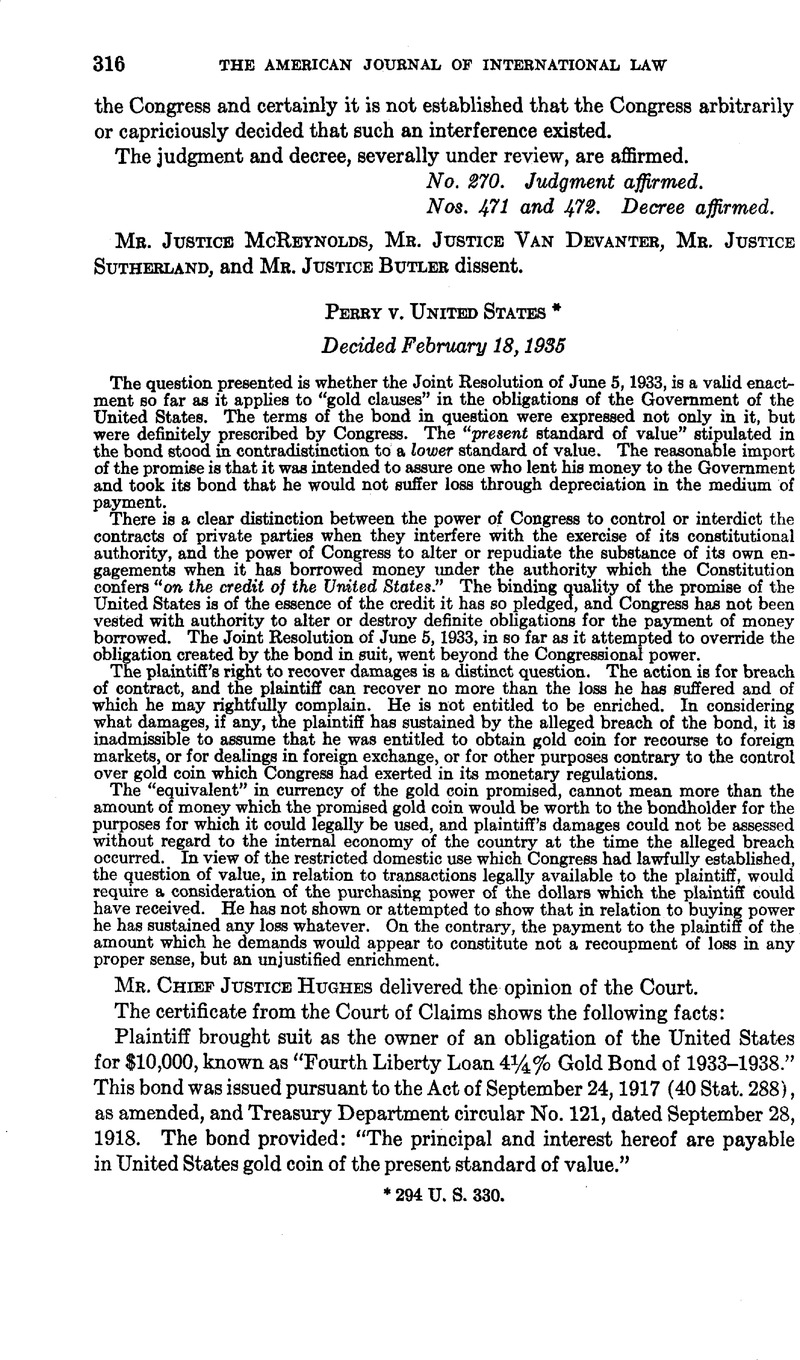No CrossRef data available.
Decided February 18,1985
Published online by Cambridge University Press: 12 April 2017

294 U. S. 330.
1 And subdivision (b) of § 1 of the Joint Resolution of June 5,1933, provided: “ As used in this resolution, the term ‘obligation’ means an obligation (including every obligation of and to the United States, excepting currency) payable in money of the United States; and the term ‘coin or currency’ means coin or currency of the United States, including Federal Reserve notes and circulating notes of Federal Reserve banks and national banking associations.”
2 Mr. Justice Strong, who had written the opinion of the majority of the Court in the legal tender cases (Knox v. Lee, 12 Wall. 457), dissented in the Sinking-Fund Case, 99 U. S. p. 731, because he thought that the action of the Congress was not consistent with the Government’s engagement and hence was a transgression of legislative power. And with respect to the sanctity of the contracts of the Government, he quoted, with approval, the opinion of Mr. Hamilton in his communication to the Senate of January 20, 1795 (citing 3 Hamilton’s Works, 518,519), that “when a government enters into a contract with an individual, it deposes, as to the matter of the contract, its constitutional authority, and exchanges the character of legislator for that of a moral agent, with the same rights and obligations as an individual. Its promises may be justly considered as excepted out of its power to legislate unless in aid of them. It is in theory impossible to reconcile the idea of a promise which obliges, with the power to make a law which can vary the effect of it.”
3 Oppenheim, International Law, 4th ed., Vol. 1, §§ 493, 494. This is recognized in the field of international engagements. Although there may be no judicial procedure by which such contracts may be enforced in the absence of the consent of the sovereign to be sued, the engagement validly made by a sovereign state is not without legal force, as readily appears if the jurisdiction to entertain a controversy with respect to the performance of the engagement is conferred upon an international tribunal. Hall, International Law, 8th ed., § 107; Oppenheim, loc. cit.; Hyde, International Law, Vol. 2, § 489.
* Not printed in this Journal.
4 In its Report of May 27, 1933, it was stated by the Senate Committee on Banking and Currency: “By the Emergency Banking Act and the existing Executive Orders gold is not now paid, or obtainable for payment, on obligations public or private.” Sen. Rep. No. 99, 73d Cong., 1st sess.